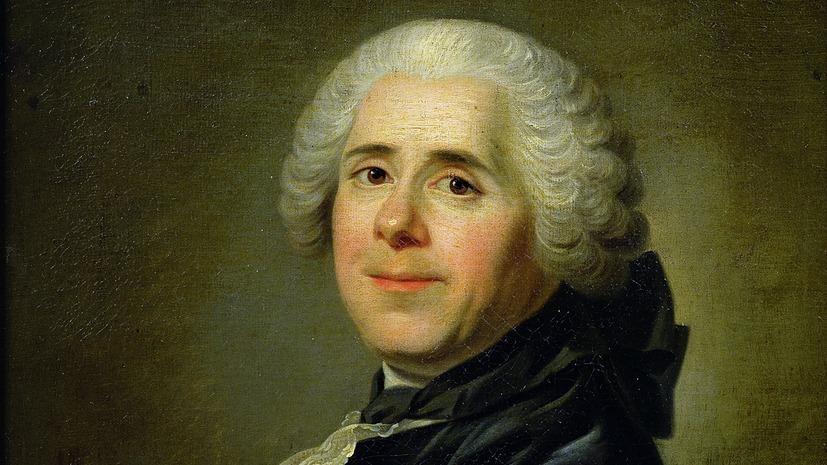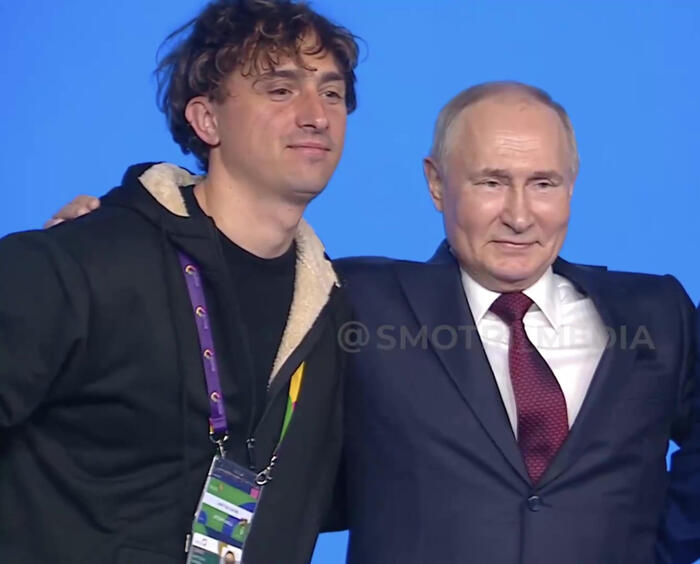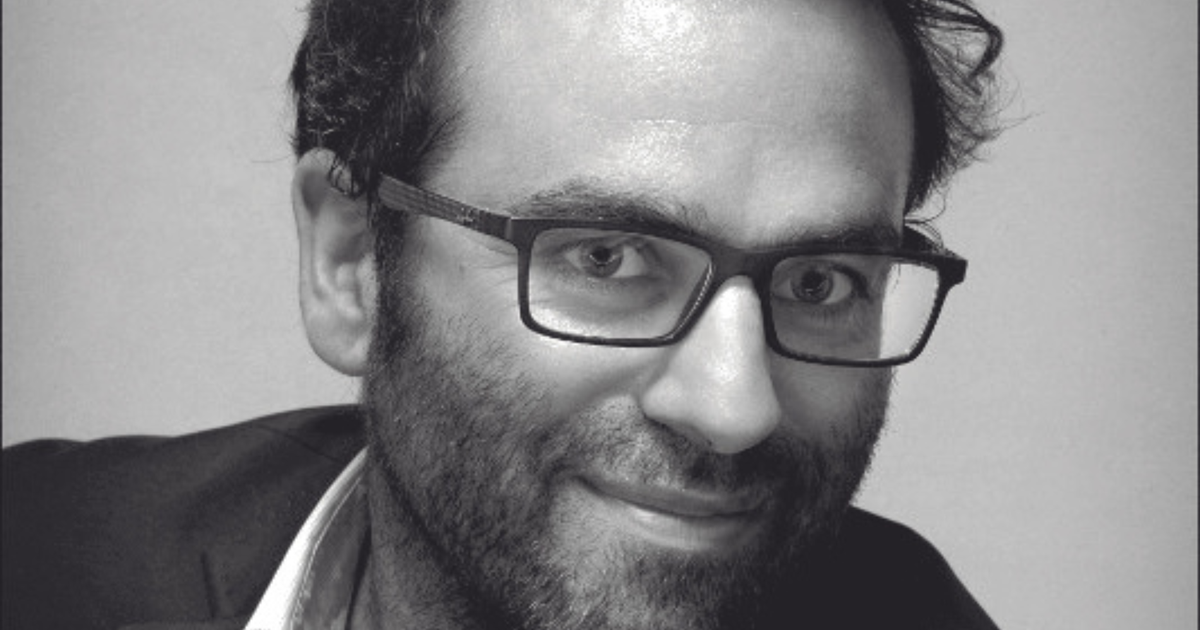A fireplace crackles in the living room of Ottessa Moshfegh's home, nestled on a hillside in the San Gabriel Mountains north of Los Angeles.
The fire presides over the room on a cold January morning.
There is a black grand piano and, still, a Christmas tree.
On the lintel there is a small sculpture of a Christ next to the Virgin.
Next to him, a postcard of Pope Francis releasing a white dove.
The room refers to a bucolic scene far from the chaos of Los Angeles.
Nothing in this beautiful house built from church rubble and recycled material and surrounded by lush greenery fits the literary penchant for the disgusting of one of America's foremost writers.
lapvona
It is the most recent novel by Moshfegh (Boston, 41 years old).
It is also the name of an obscure medieval village in eastern Europe where a story involving various characters takes place.
One of these is Marek, a deformed boy who was the product of a rape who owes his deformations to the fact that his mother tried to abort him by placing toxic herbs between his legs.
At only 13 years old, Marek believes that the pain of penance is a moral duty.
This idea helps him survive in Villiam's castle, an evil feudal lord who orders the most varied tortures and humiliations to his servants.
For example, forcing a maid to eat a grape that Marek passed through his anus.
At night, Villiam dreams that his bed is made of "human flesh, a living thing made of baby fat and soft skin."
"I think that novelists who seek political responsibility should call themselves literary activists"
lapvona
was published in the United States last summer.
It was received with divided opinions.
Many critics are still dazzled by an imaginative universe expressed in a neat and orderly way.
Those with a more sensitive stomach, on the other hand, did not spend a good time between its pages.
In a June chat in New York, director John Waters, known for a filmography that wallows in the filthy, jokingly asked him if he intended to strip him of the informal title of "emperor of filth."
Moshfegh showed no interest in the sceptre.
“This is a book about spirituality.
It is the most important thing, and more after all the public discussion that considers it so unpleasant.
I thought that some were going to find value in the grotesque, but they didn't”, says the author sitting in an armchair in her living room in Pasadena.
Lapvona's gloomy atmosphere is a product of early anxiety brought on by the pandemic.
Moshfegh believes that her obsession with her death has led her to create antisocial protagonists in her work who feel alienated, such as the narrator of what is perhaps her best-known book,
My Year Off. and relaxation
(2018).
The coronavirus crisis stripped her of her fixation.
“I stopped feeling that my spiritual questions were peculiar, they became completely standard.
I realized that this had always been the case, that I am not the only one who has a spiritual experience when contemplating death.
It was silly not to try to express this creatively,” she muses.
Moshfegh responds in a way that allows him to edit himself as she speaks.
She is not afraid to take long pauses until she finds the best way to end a sentence.
From left to right, the actor Shea Whigham, the writer Ottessa Moshfegh, her husband, the writer Luke Goebel, the director William Oldroyd, and the actresses Anne Hathaway and Thomasin McKenzie, during the promotion of the film 'Eileen' at the Festival of Sundance last Saturday in Park City, Utah.Taylor Jewell (Invision)
This, what Moshfegh calls a "change in perspective", caused his novel to become a turning point in his work.
She explores for the first time with an omniscient third-person narrator and multiplies her male characters after three consecutive female-led novels (in
McGlue
, his literary debut in 2014, the protagonist is an alcoholic sailor imprisoned for killing his best friend).
He considers that Grigor, a 64-year-old man who sees his two grandchildren murdered in the first pages of the story, is the character he has enjoyed writing the most.
Because of his fondness for freaks, she has been compared to Flannery O'Connor and the photographer Diane Arbus.
“I really love him, I feel very close to him, I am very fond of him”, considers the creator of Grigor, a man who is experiencing a crisis of faith and who feels cheated by his god.
The daughter of an Iranian Jewish violinist who fell in love with a Croat,
Lapvona
's stories came as the author thought of her maternal ancestors, who were supposedly descended from pirates who had caused terror in the Adriatic.
The writer is not religious or a believer.
However, she has a head astrologer.
“I am not an expert in Vedic astrology, but I like to talk to intelligent people about things that can be perceived objectively, like the planets and stars, rather than about the stories in the Bible.
It makes more sense to analyze its influence on life on Earth than that of a moralistic text written millennia ago, ”she considers.
“But I wouldn't say I'm on a spiritual quest.
My religion is the creative process,” she continues.
Moshfegh, who has been in the spotlight for years, has been accused by some critics of having no ideology or moral compass.
Needless to say, such remarks can be dire in the minefield of American political correctness, which forces an opinion on almost everything.
Some literary critics have charged against her because in her books there are almost no obese women and, when there are, the characters refer to them with disgust, as is the case with the protagonist of
La muerte en sus manos
De ella (2020).
Ottessa Moshfegh and Camila Parker-Bowles, Duchess of Cornwall, in 2016 in London.John Phillips (WPA/Getty Images)
“I don't get paid extra to write a feminist character.
They don't give me a salary.
It would be like asking a painter if he feels the obligation to paint women with a good body mass index… Do you know someone who likes fat people?
Seriously, if I created a character who liked me, they would accuse me of being a fat fetishist,” says Moshfegh.
The writer reaffirmed her creed with some notes published in 2021 by
Bookforum
.
“A novel is a literary work of art that seeks to expand inner knowledge.
We need novels that live in an amoral universe, beyond the political agenda described by social networks.
We have the imagination for something ”, she pointed out that text.
From his mountain refuge, Moshfegh lives in a kind of digital blackout.
“If someone were to ask me what represents evil best, I would say the internet,” she says.
She writes on an Apple laptop, but doesn't have access to social media.
Despite this, it is inevitable that polemics from the cyber world will reach your ears.
One of her latest, from a Twitter user who predicted her imminent cultural cancellation after a harsh criticism of
Lapvona
written by Andrea Long Chu, a transgender activist, for
Vulture
magazine .
"The violence of these songs is incredibly boring and makes me feel like I'm living in a prison."
Villiam, the feudal lord of
Lapovna
, is an incompetent jerk who lives in his castle while the townspeople suffer from a devastating famine that forces Ina, another of the protagonists, to eat spiders in order not to die.
Moshfegh rejects that Villiam holds any clues about the current political leadership.
“I believe that art has no morals, it should never be used for moral or political purposes.
It is the main difference between literature and propaganda.
I may be completely wrong, but I insist that I am not a politician because I do not want to have any social intervention.
I think novelists who want political responsibility should call themselves literary activists,” he continues.
"I refuse to tell anyone what to think."
“Writing gives me extreme joy, which does not mean that it always makes me happy.
But I do feel that it gives meaning to my life.”
“Writing gives me extreme joy, which does not mean that it always makes me happy.
But I do feel like it gives my life meaning,” says Moshfegh, who considers herself a workaholic.
“I don't enjoy many things other than work.
I know it sounds fucked up, ”she says with resignation.
Long ago she set herself the goal of writing at least a thousand words a day, a rate that allowed her to publish four novels, a short novel and a book of stories in eight years.
Her own work called her formula into question.
“When I was writing My Year of Rest and Relaxation, I worked about 10 hours a day on the book.
She drove me crazy.
I realized then that sometimes when you don't know what you're doing, it's better not to do anything, because you're running out of energy."
Formed with an academic pedigree that took her through Brown and Stanford universities between 2009 and 2015, the writer now doubts the lessons creative writing programs taught her.
In 2016 she candidly told
The Guardian
that she had found the best writing advice in
The 90-day novel,
a workshop guide by Professor Alan Watt.
Moshfegh
defends the manual coined in a Los Angeles writers lab, which she blamed for her first hit,
Eileen
.
;
Alfaguara, 2017), about the depressive secretary of a juvenile prison who finds her first great friendship.
"For me it was a miracle," Moshfegh acknowledges of that text.
“When I started as a writer I had a very experimental style, like prose poetry.
And one of the most common mistakes people have about those programs is that they can teach you how to build the plot of a novel, something that I never learned in those classrooms, ”she says.
Eileen
ended up among the finalists for the Man Booker Prize and its film adaptation premiered last weekend at Sundance, the great independent festival in the United States.
Directed by the British William Oldroyd - he was the one who sent him the postcard from Pope Francis from Rome - the film stars Anne Hathaway and Thomasin McKenzie.
It is the first film adaptation that Moshfegh has made of his work.
The author worked on the script with her husband, fellow writer Luke Goebel, who accidentally interrupts the conversation when she returns from walking the couple's five dogs.
The author herself swears that there is only one thing she loves more than writing: spending time with these animals.
Goebel, to whom My Year of Rest and Relaxation is dedicated, met Moshfegh while working for the University of California at Riverside.
She went to the author in November 2016 to interview her for Nostalgia from another world, her collection of stories.
The talk led to a crush that took 27 days to set, a period of time full of "sex and conversations about literature."
The house they share in the mountains could well be a writing workshop.
The couple wrote 2022
Causeway
, headed by Jennifer Lawrence, and is working four-handedly on four original screenplays, plus adaptations of their books.
The most recent is the screen version of
McGlue,
set in the middle of the 19th century and where the protagonist, in the midst of hallucinations caused by drink, tries to remember whether or not he committed a crime.
“It is very fun to move between literature and cinema.
A good way to learn to write screenplays is to adapt your own work, a familiar world where the feelings and the characters are familiar to you, ”she says.
Margot Robbie has shown interest in directing the version of
My Year of R&R
.
Moshfegh says that she will not stop doing literature and that she is currently working on two novels.
She has already decided that one of them will be written unhurriedly, slowly, for the first time, as she explores her path as a screenwriter in Hollywood.
On a mountain in California another ominous universe is about to be born.
'Lapvona'.
Ottessa Moshfegh.
Translation of Immaculate Conception Pérez Parra.
Alfaguara, 2023. 320 pages.
€18.91.
You can follow BABELIA on
and
, or sign up here to receive
our weekly newsletter
.
Subscribe to continue reading
Read without limits
Keep reading
I'm already a subscriber

/cloudfront-eu-central-1.images.arcpublishing.com/prisa/WUOOI7ZSWJBJJN7MIJHGOXSLV4.jpg)







/cloudfront-eu-central-1.images.arcpublishing.com/prisa/Z4UBGLQEOBHVJGLHLVFFREHAC4.jpg)





